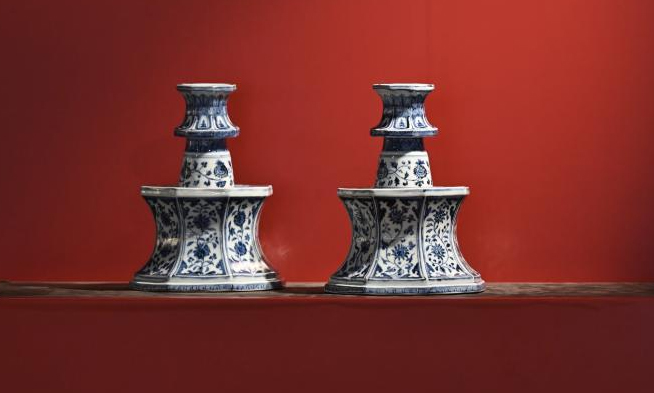Washington’s conniving in collusion between power and capital results in human rights tragedies in private prisons
Thousands of federal, state, local, and tribal systems in the U.S. hold almost 2 million people in 1,566 state prisons, 102 federal prisons, 2,850 local jails, 1,510 juvenile correctional facilities, 186 immigration detention facilities, and 82 Indian country jails, as well as in military prisons, civil commitment centers, state psychiatric hospitals, and prisons in the U.S. territories, said a recent report from American public policy think tank Prison Policy Initiative (PPI).
The U.S., with the highest incarceration rate in the world, has genuinely become a prison country, as Robin Kelly, Gary B. Nash Professor of American History at the University of California, Los Angeles, put it bluntly.
What’s more bizarre is that about six out of every 100 people incarcerated in the U.S. are held in private prisons, as statistics suggested.
The state and federal governments of the U.S. have contracted out the operation of public prisons to private companies on the pretext of purchasing services. Such an abnormal phenomenon has aroused widespread condemnation and criticism from all walks of life.
Prisons, which are supposed to be correctional facilities that represent justice, are privatized by the U.S. and turned into slave factories where many politicians and business people have raked in huge profits.
Since the 1980s, the U.S. government has included private prisons into its national correctional system under the banner of easing the pressure and lowering the costs of incarceration, shifting the responsibilities that should be shouldered by the government to interest groups.
Driven by exorbitant profits, private prisons expanded rapidly. From 1990 to 2010, the number of private prisons in the U.S. increased by 16 times. More than 30 states in the U.S. were in cooperation with private prison companies.
In 2019, about 116,000 people were held in private prisons in the U.S., suggested data from the website of The Sentencing Project, an American non-profit organization that has worked for a fair and effective U.S. criminal justice system.
Last year, two U.S. private prison giants, CoreCivic and GEO Group, which have been listed both, saw their operating income reach $1.86 billion and $2.26 billion, respectively. It is the highest purpose of U.S. private prisons to create value for shareholders.
CoreCivic was even named one of America’s Best Large Employers by Forbes.
Once prisons are dominated by capital, money is placed above justice, which inevitably results in plenty of human rights tragedies. To fill prisons, prisoners’ jail terms were extended; and the government constantly “produces prisoners” through laws prosecuting minors.
A shocking ‘kids for cash” judicial scandal in Luzerne County, Pennsylvania, was exposed in 2011. Two local judges accepted over $2 million of kickbacks from two private prison operators in exchange for giving heavy sentences to juveniles who committed minor offences in the absence of an attorney and sending about 4,000 juveniles to privately run prisons between 2003 and 2008.
A study conducted by the Washington State University found that private prisons lead to an average increase of 178 new prisoners per million population per year and longer sentences.
The length of sentences also increases when private prisons come into a state, especially in nonviolent crimes that have more leeway in sentencing guidelines, according to the study.
Private prisons make money by keeping humans in cages, which means that they will try every means to find more prisoners, pointed out American social activist Bonnie Kerness.
UN human rights experts urged the U.S. to “eliminate all for-profit detention facilities”, according to an article published on the website of the UN.
Private prison industry of the U.S. has developed a deep-rooted chain of interests in the country’s political and business circles, seriously distorting the U.S. judicial system.
While several industries have become notorious for the millions they spend on influencing legislation and getting friendly candidates into office, private prison industry has managed to quickly build influence with comparatively little scrutiny, pointed out U.S. media.
For-profit prisons and other interest groups have long been leveraging three magic weapons, namely political donation, lobbying and power-for-money deal, to affect political agenda and criminal policies. By increasing the number of incarcerated people and extending the term of imprisonment, these prisons have garnered huge profits.
Statistics showed that between 2010 and 2015, CoreCivic and GEO Group spent around $14.6 million on lobbying for big government contracts. In 2015, the two private prison operators hired 20 lobbyists in Washington with $1.6 million and finally tipped the balance in favor of the private prison industry in three important federal bills.
Private prison industry in the U.S., which has formed a tight and huge chain of interests, is essentially a product of the collusion between capital and power, said an analyst.
Turning the government functions of corrections into a tool for pursuing profits and rehabilitation of offenders into a lucrative business, private prisons in the U.S. have not only deviated from the original purposes of corrections, but committed numerous crimes concerning human rights.
However, such a black hole in state governance has long been indulged by the U.S. government, which proves again that the self-styled “beacon of democracy” has been unworthy of the title long ago.
The root cause of the human rights violations in private prisons in the U.S. lies in the country’s flawed systems.
When power and capital are placed above equity and justice, the so-called democracy and human rights are nothing but empty talk.
(Zhong Sheng is a pen name often used by People’s Daily to express its views on foreign policy and international affairs.)
Photos
Related Stories
- US: hypocritical guardian of human rights
- U.S. economic downturn, inflation cause severe hardships for lower-income families: Al Jazeera
- Racism a poison running through American body politic
- Infographic: Mass shootings in the United States
- Feature: Baby formula shortage worsening in U.S. prompts federal intervention
- Feature: 2 years on, anti-Asian hatred persists in New York
- U.S. urged not to rope in Southeast Asian countries out of geopolitical interests
- Jen Psaki leaves role as White House press secretary
- U.S. uses democracy as pretext for interference -- experts
- US media: 1 million COVID-19 deaths the benchmark of an unprecedented American tragedy
Copyright © 2022 People's Daily Online. All Rights Reserved.










